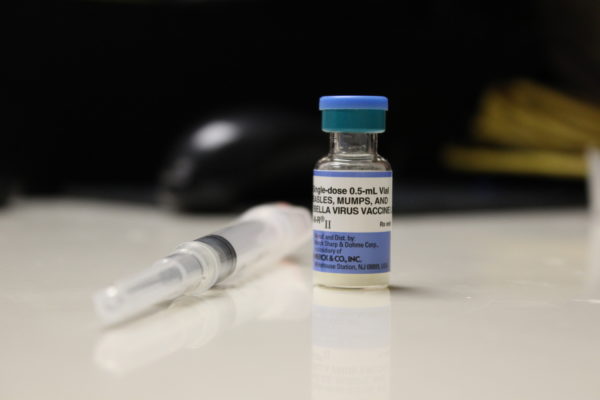With help from the news media, the measles exposure at Disneyland in California has given healthcare professionals a renewed opportunity to share information about measles with parents of the children for whom we care.
The full scope of the illness that will result from the exposure in California has yet to be determined, but I am pleased that many parents are listening closely for information and advice about how to best protect their families from measles. I am also encouraged that this exposure is acting as a catalyst for some parents to give new thought to previous decisions to delay or skip vaccines for their children.
Measles is a serious illness that should not be regarded is simply a part of childhood. Many years ago, when most children got measles, the majority of those children recovered in time, but some had significant life-altering or fatal complications. Today, those are unnecessary risks when the vaccine offers nearly complete immunity if two doses are administered as recommended.
Below you will find answers to some of the questions we’re hearing most from parents about measles:
1. What is measles? – Measles is a highly contagious virus that lives in the nose and throat mucus of an infected person. If acquired, the virus causes a serious infection that can be complicated by ear infections, pneumonia, and seizures. Children with measles who develop brain inflammation are left with significant disabilities.
2. How does measles spread? – It can spread to others through coughing and sneezing. Measles virus can live for up to two hours on a surface or in an airspace where the infected person coughed or sneezed. If other people breathe the contaminated air or touch the infected surface, then touch their eyes, noses, or mouths, they can become infected. Measles is so contagious that if one person has it, 90% of the people close to that person who are not immune will also become infected.
3. Who is at greatest risk of acquiring measles? – Unvaccinated persons of all ages are at risk of acquiring measles – babies less than 12 months old are in this group, as they are too young to be vaccinated. People who have weakened immune systems, even if previously vaccinated, are also at risk.
4. What are the symptoms of measles? – Measles starts with fever (which can be as high as 105°F) and generally feeling run down; cough, coryza (runny nose) and conjunctivitis (red watery eyes) are the classic 3 C’s of measles. A rash comes next, often starting at the head and moving down.
5. What should I do if I think someone in my family might have measles? – Call your physician. He or she will evaluate the ill family member and notify public health if there is real concern.
6. How well does the vaccine work? – The measles vaccine (a component of the MMR) is highly effective at preventing measles. Two doses of vaccine are recommended; one dose is 93-95% effective, and 2 doses are 97-99% effective.
7. Do adults need MMR vaccine boosters? – Adults who were born before 1957 likely have had natural exposure and might be immune. However, in the absence of proof of immunity, they should receive at least one dose of MMR, as should any other adult who does not have evidence of immunity. Persons in health care and similar positions should have a record of 2 doses of MMR.
8. My family has plans to travel to Disneyland in California, should we cancel our plans? – A family that is NOT vaccinated against measles should avoid areas where measles might be circulating. Currently, that would include Disneyland in California. If all members of your family are fully vaccinated, there is no medical reason to change your plans.
In 2014, 644 cases of measles were reported to the Centers for Disease Control and Prevention (CDC) – more than three times the number reported a year earlier. The majority of those infections were in people who were unvaccinated.
Unvaccinated persons rely on others to protect them by not getting the disease and therefore not sharing it. As evidenced by the quick spread of the illness in California, measles is highly contagious and spreads easily. It is estimated that 9 of 10 exposed, susceptible people will catch measles.
The MMR vaccine is safe and can be given at any age after 12 months, and even as young as 6 months if exposure is possible. There are a very small number of people who cannot have MMR vaccine due to medical conditions and it is particularly important for families of those individuals to be fully vaccinated to help “cocoon” the unvaccinated person.
Editor’s update: In April 2015 the California measles outbreak was declared to be over. In total 147 people were infected as part of that outbreak.





